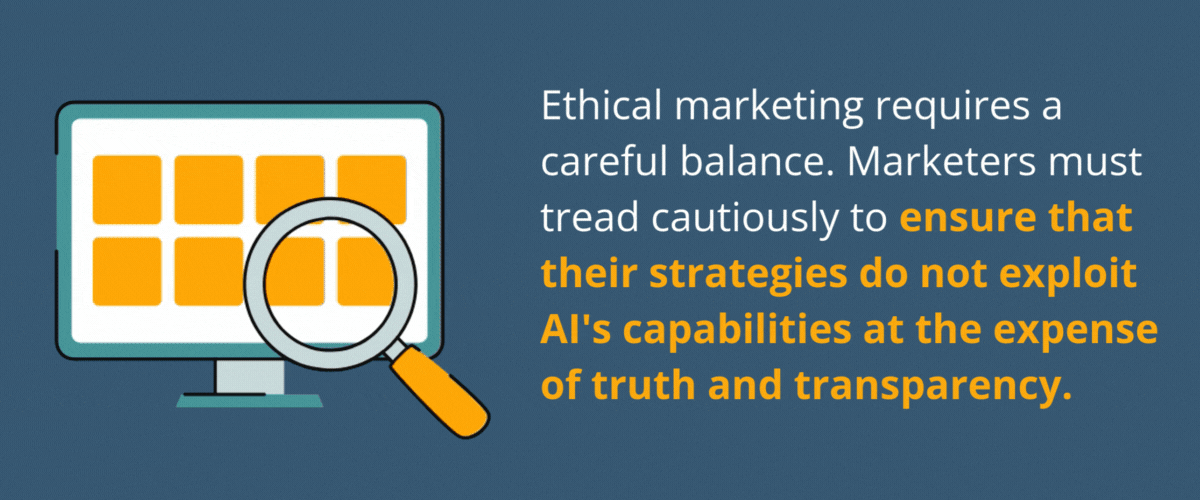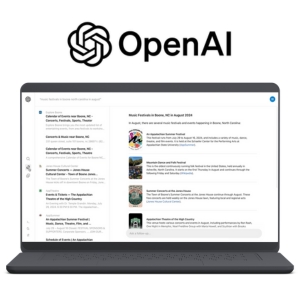The digital landscape is undergoing a significant transformation as generative AI-powered search engines become increasingly influential. These advanced algorithms, designed to generate content and provide more nuanced responses, are reshaping the way we think about Search Engine Optimization (SEO). In fact, there’s a new buzzword in town—Generative Engine Optimization (GEO), which is the process of optimizing your website’s content to boost its visibility in AI-driven search engines such as ChatGPT, Perplexity, Gemini, Copilot and Google AI Overviews. For marketers, this evolution presents both opportunities and challenges as they strive to maintain ethical standards while adapting to the new rules of search.
The Shift in SEO: From Keywords to Context
Traditional SEO practices have long relied on keyword optimization to drive traffic to websites. However, the emergence of AI-powered search engines is shifting the focus from simple keyword placement to a more complex understanding of context and intent. These engines, equipped with advanced natural language processing capabilities, are now able to generate content that is not only relevant but also contextually accurate. Well, at least in theory. There’s still a long way for them to go to be able to call themselves totally accurate.
 For some businesses, this means that traditional, basic SEO strategies might not be as effective. Instead, there is a growing need to create high-quality, user-focused content that aligns with the search intent of users and a bigger emphasis on technical SEO strategies like schema markup to help language learning models really understand the context of a webpage. It’s no longer just about ranking for specific keywords but about providing valuable, trustworthy information that meets the needs of the audience.
For some businesses, this means that traditional, basic SEO strategies might not be as effective. Instead, there is a growing need to create high-quality, user-focused content that aligns with the search intent of users and a bigger emphasis on technical SEO strategies like schema markup to help language learning models really understand the context of a webpage. It’s no longer just about ranking for specific keywords but about providing valuable, trustworthy information that meets the needs of the audience.
Mad Fish and E-E-A-T Guidelines: Prioritizing the User
At Mad Fish, our approach to content creation is deeply rooted in Google’s E-E-A-T (Experience, Expertise, Authoritativeness, and Trustworthiness) guidelines. We understand that in this new era of search, it is more important than ever to prioritize the user first. By focusing on delivering content that is not only informative but also credible and trustworthy, we help our clients maintain their rankings in this evolving digital landscape.
We begin each content marketing engagement with keyword research and mapping, analyzing intent, to craft content that meets users where they’re at in the customer journey. We work closely with our client’s internal team members to understand their customers’ pain points and challenges to create and adjust content to address those needs.
The Ethical Implications: Treading Cautiously in a New Era
As we navigate this new era of search, it is essential to consider the ethical implications of our strategies.
The rise of generative AI presents a double-edged sword: while it offers the potential for more personalized search results, it also raises concerns about the spread of misinformation and the potential for manipulation. Up until the core algorithm update in August 2024, spammy, nonauthoritative sites were being cited as resources in Google’s AI Overviews which caused many issues with misinformation.
With the introduction of easily accessible and free AI tools like ChatGPT, many strategies have unfortunately started prioritizing quantity over quality. With new AI tools for media asset creation like video and images, there are concerns about copyright infringement.
Ethical marketing requires a careful balance. Marketers must tread cautiously to ensure that their strategies do not exploit AI’s capabilities at the expense of truth and transparency. As a B Corp, Mad Fish has put a lot of time and energy into the topic of ethics with discussions around how we can leverage the power of AI while maintaining the integrity of our work.
 The Future of SEO in an AI-Driven World
The Future of SEO in an AI-Driven World
As AI continues to evolve, so too will the world of SEO. The future will likely see a greater emphasis on content that is not only optimized for search engines but also deeply rooted in user experience and ethical standards. The landscape is becoming even more dynamic with the introduction of AI-driven search engines, such as the upcoming search generative experience by OpenAI—SearchGPT. This development signals a significant shift in how search results may be generated and presented, adding an additional layer of complexity to SEO strategies. There’s no telling how this new approach will truly impact the search landscape, but one thing is certain: adaptability and a strong foundation in ethical practices will be more crucial than ever.
search engines but also deeply rooted in user experience and ethical standards. The landscape is becoming even more dynamic with the introduction of AI-driven search engines, such as the upcoming search generative experience by OpenAI—SearchGPT. This development signals a significant shift in how search results may be generated and presented, adding an additional layer of complexity to SEO strategies. There’s no telling how this new approach will truly impact the search landscape, but one thing is certain: adaptability and a strong foundation in ethical practices will be more crucial than ever.
At Mad Fish, we are committed to helping our clients navigate this new era of search. By staying true to the principles of E-E-A-T and prioritizing ethical marketing, we ensure that our clients remain competitive in a rapidly changing digital landscape. As we move forward, the key to success will be a continued focus on the user, combined with a commitment to transparency, integrity, and ethical practices. This holistic approach not only aligns with the evolving nature of search engines but also strengthens our clients’ positions as trustworthy and authoritative sources in their industries.

